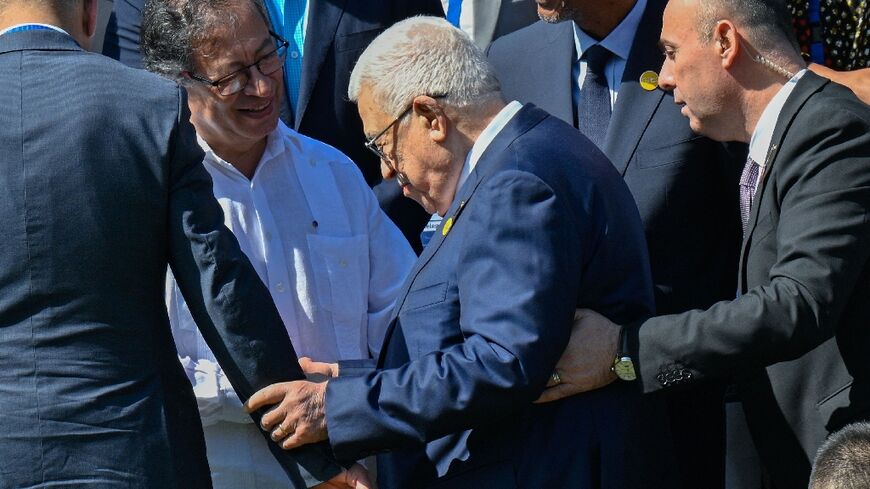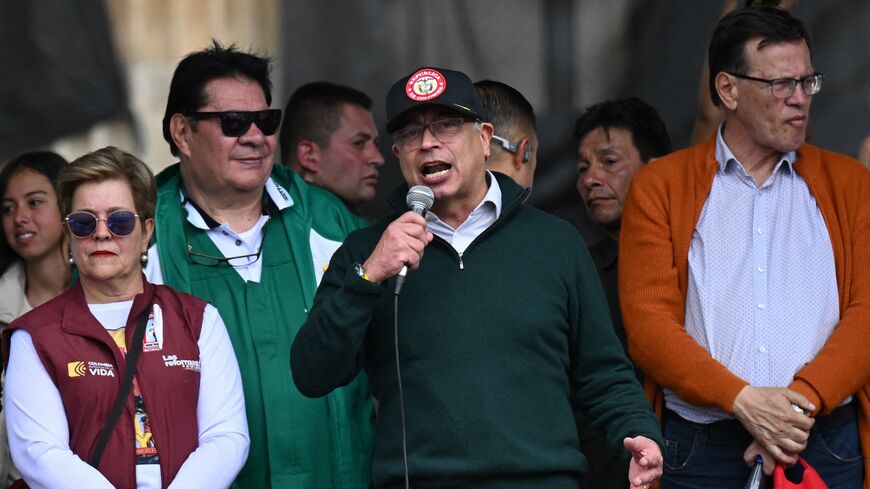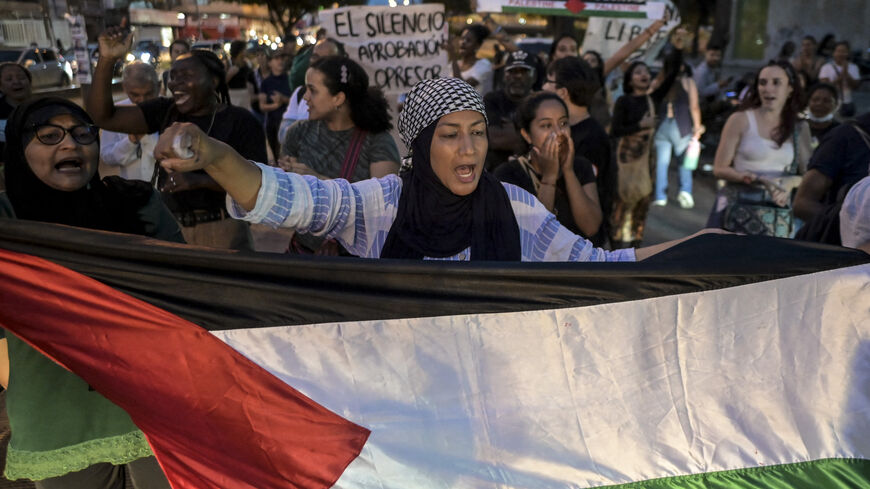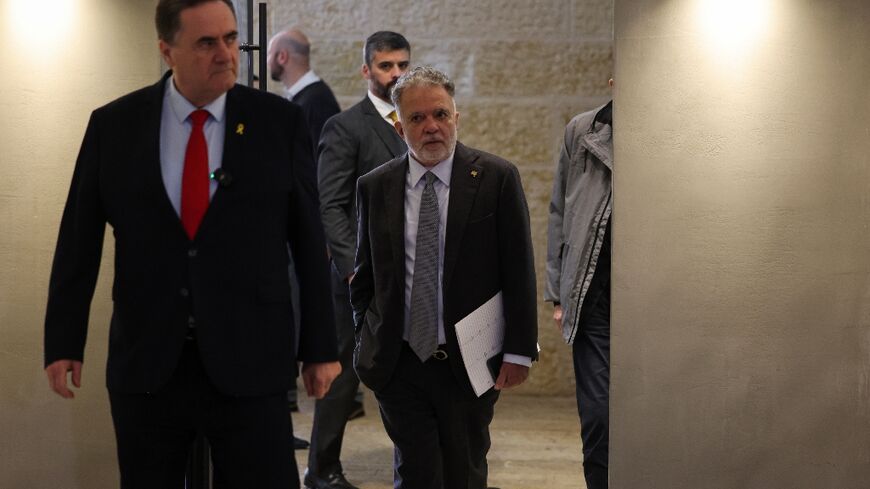Bogota cuts ties with Israel over 'genocidal' Gaza campaign
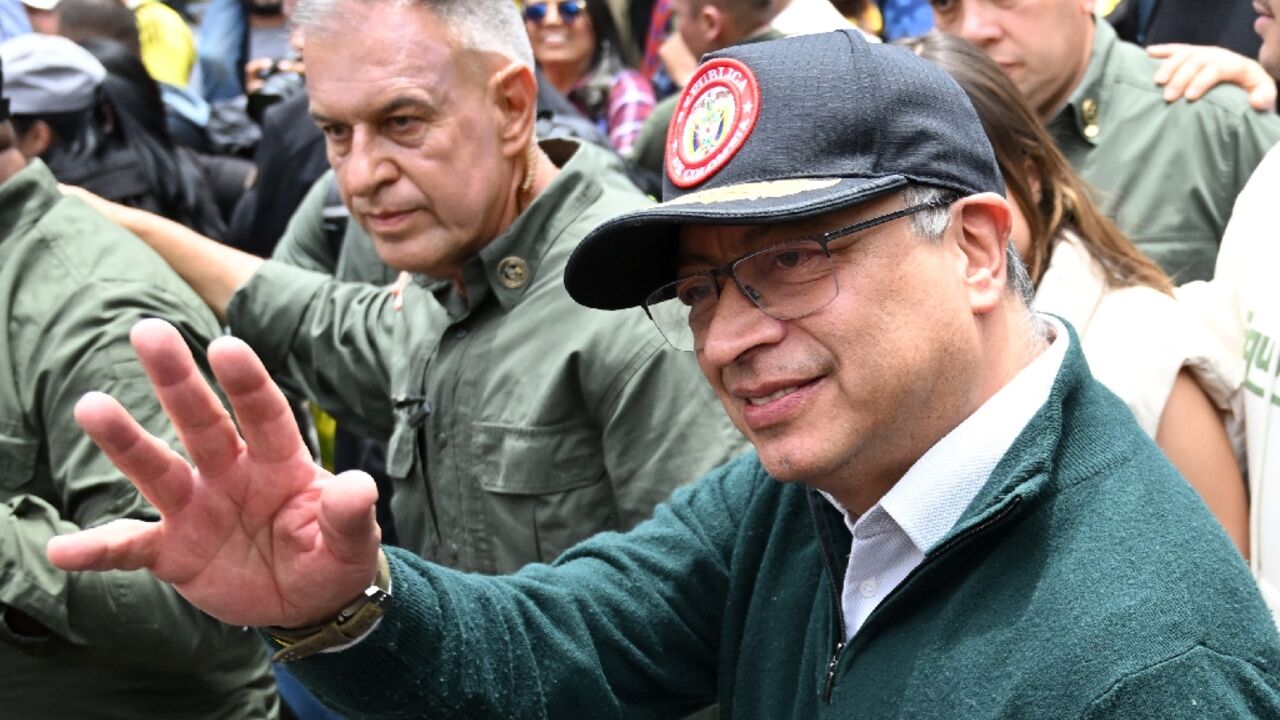
President Gustavo Petro said Wednesday Colombia will sever diplomatic ties with Israel, whose government led by Prime Minister Benjamin Netanyahu he described as "genocidal" in its war in Gaza.
"Tomorrow (Thursday) diplomatic relations with the state of Israel will be severed... for having a government, for having a president that is genocidal," Petro, a harsh critic of the devastating war against Hamas, told a May Day rally in Bogota.
Netanyahu is Israel's head of government, while the country's president -- a role which is largely ceremonial -- is Isaac Herzog.
The war in Gaza broke out after the unprecedented Hamas attack on southern Israel on October 7. That assault resulted in the deaths of some 1,170 people, mostly civilians, according to Israeli figures.
Hamas militants also took about 250 hostages, 129 of whom remain in Gaza, including 34 Israel says are presumed dead.
Israel's retaliatory offensive has killed at least 34,568 people in Gaza, mostly women and children, according to the health ministry in the Hamas-run territory.
On Wednesday, Petro told thousands of supporters that the world cannot accept "genocide, the extermination of an entire people."
"If Palestine dies, humanity dies," he said to loud applause from the crowd, some of whom flew pro-Palestinian banners.
Israel responded by describing Petro as "anti-Semitic and hateful," saying his stance amounted to handing a reward to Hamas.
"The Colombian president has promised to reward Hamas murderers and rapists -- and today he delivered," Foreign Minister Israel Katz said on X.
"History will remember that Gustavo Petro decided to stand by the most despicable monsters humanity has known, who burned babies, murdered children, raped women and kidnapped innocent civilians," Katz added.
Hamas, for its part, hailed the move as a "victory."
"We greatly appreciate the position of Colombian President Gustavo Petro... which we consider a victory for the sacrifices of our people and their just cause," the Islamist group said in a statement, urging other Latin American countries to follow suit.
The Confederation of Jewish Communities of Colombia issued a statement mindful of the "brotherly" relations the country has had with Israel dating back to 1953.
It urged the ties "be maintained, leaving open channels of dialogue" for "the good of both peoples."
Colombia has joined Bolivia, Belize and South Africa in severing or suspending ties with Israel. Several other countries have recalled diplomats.
- 'Fueling anti-Semitism' -
In October, days after the start of the war, Israel announced it was "halting security exports" to Colombia after Petro accused Israeli Defense Minister Yoav Gallant of using language about the people of Gaza similar to what the "Nazis said of the Jews."
Israel at the time accused Petro of "expressing support for the atrocities committed by Hamas terrorists, fueling anti-Semitism," and summoned Colombia's ambassador.
Bogota subsequently demanded that Israel's envoy leave the South American country.
Petro, Colombia's first leftist president, has also asserted that "democratic peoples cannot allow Nazism to reestablish itself in international politics."
In February, he suspended Israeli weapons purchases after dozens of people died in a scramble for food aid in the war-torn Gaza Strip -- an event he said was "called genocide and recalls the Holocaust."
Colombia's armed forces, engaged in a decades-long conflict with leftist guerrillas, right-wing paramilitaries and drug cartels, use Israeli-made weapons and aircraft.
The country has a history of strong diplomatic and military relations with Israel and the United States.
Petro had come out in support of Brazil's President Luiz Inacio Lula da Silva, who also drew the ire of Israel by saying its Gaza campaign "isn't a war, it's a genocide."
Colombia and Brazil supported South Africa's complaint against Israel to the International Court of Justice in The Hague, alleging the assault on the besieged Palestinian territory amounted to a breach of the Genocide Convention.
Colombian May Day demonstrator Sandra Gutierrez, a 38-year-old teacher, welcomed her president's announcement.
"One cannot be an accomplice of the murderers," she told AFP on Plaza Bolivar square.



